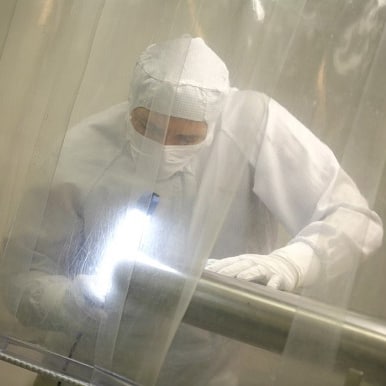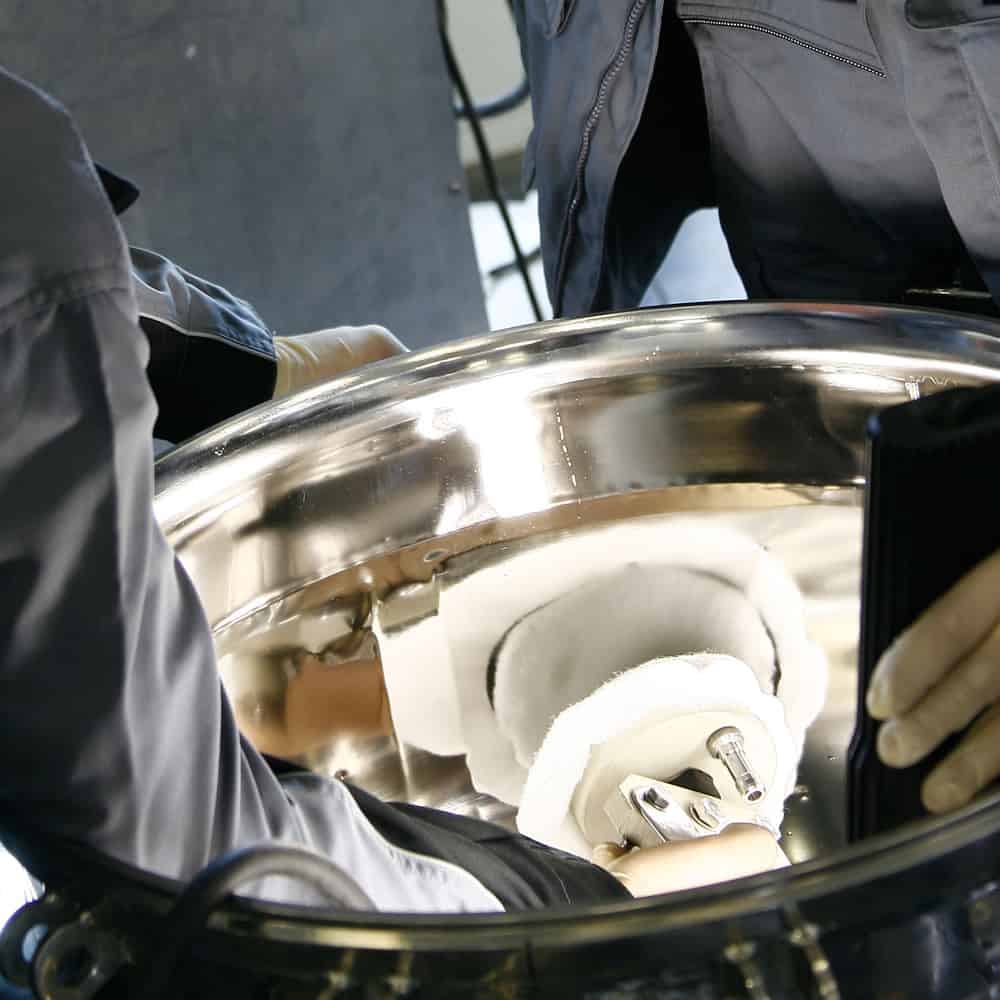Electropolishing of stainless steel
For more than 20 years, Alflow has performed professional surface treatment. This includes electropolishing of stainless steel for the pharmaceutical, process, chemical and food industries. For you, this means a company with extensive experience in delivering an even, strong result and a shiny surface on your items.
Get surface levelling on a microscopic level
Maximum corrosion resistance, low surface roughness and long durability. These are just some of the benefits you get with our electropolishing. At Alflow, we focus on creating the smoothest surface that is also the strongest, most hygienic and easy to clean.
This means that with our electrochemical polishing you get a metallically clean surface for your workpieces. It's especially useful for critical equipment in the medical industry and the food industrywhere you want a minimised risk of bacteria and easy cleaning. If you need to see documentation, we can of course provide it.
Whatever your business needs, you can count on our electropolishing to fulfil all your requirements in terms of workmanship, environment and hygiene. This gives you increased reliability and an optimal surface.
Do you want to Consultancy or testingwe also offer a range of services on various flow products - including electropolishing and onsite.
Electropolishing with top execution, environment and hygiene
There are many advantages to using electropolishing. The method is effective for making surfaces smooth and shiny in several different industries. For example, you can use electropolishing to polish and grind smaller products in the pharmaceutical industry.
In electropolishing, a piece of metal is lowered into a vessel, usually consisting of sulphuric and phosphoric acid. The temperature is usually above 50ºC. The workpiece itself is anodically coupled using a rectifier. During the process, the steel is slowly peeled off. This causes the roughness to decrease on the metal. In addition to stainless steel, examples include aluminium, copper, nickel, titanium, carbon steel and nitinol.
After the metal has been dipped in the acid bath, you not only get a piece with a shiny and strong surface. Rust will also have a harder time settling because the polish is so even and smooth. It also makes it harder for chloride, lime and salt to settle. Electropolishing makes it easier to keep the material clean. The result is a uniform, glossy surface that is easy to maintain and has great strength.
A serious supplier of stainless steel electropolishing
As a major supplier of quality products to the food, chemical and pharmaceutical industries, the demands are high. Therefore, we continuously ensure that our suppliers comply with all applicable requirements from directives and standards within these industries. We also have several specialists with many years of experience.
So if you want to work with us, you can rest assured. We offer thorough electropolishing of stainless steel, but you also have the option of many other types of surface treatments. See among others All our products and components in four different industries.
Do not hesitate to Contact usIf you want to know more about the possibilities of coating different metals.
What is electropolishing?
Electropolishing involves removing metal from the surface of the workpiece in an electrolyte (high conductivity solution) under the influence of direct current. The component to be electropolished forms the positive pole (anode) and the cathode the negative pole, which completes this electrical cell. When the current is switched on, metal dissolves on the anode surface and dissolves in the electrolyte. The removal of material can be specifically determined by the respective electrolyte, current density and polishing time.
What are the benefits of electropolishing?
Electropolishing offers many advantages over mechanical machining of metal surfaces, including smooth and shiny surfaces, micro-smoothing through electropolishing, high corrosion resistance, metallic purity and chemical passivity, optimal cleaning, reduced friction and wear, and many more.

